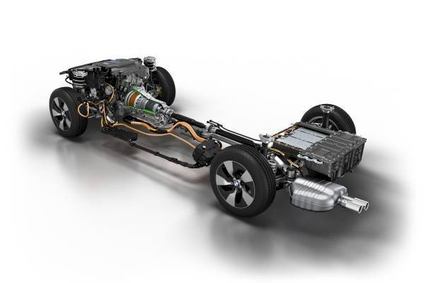
BMW Group said it would follow up its all-electric and hybrid, plug-in range extender i3 and i8 models with plug-in hybrid versions of core-brand models.
It has readied a 3 Series plug-in hybrid prototype and a new generation of hybrid vehicle concepts incorporating technology already used in the i models.

Discover B2B Marketing That Performs
Combine business intelligence and editorial excellence to reach engaged professionals across 36 leading media platforms.
“Long term, the BMW Group is planning to offer plug-in hybrid versions of all its core-brand models,” the automaker said in a statement.
According to development chief Herbert Diess: “All BMW Group models benefit from BMW i. The fundamental technology involved in battery cells, electric motors and the power electronics will be used in our upcoming plug-in hybrid models. When it comes to the electrification of the drivetrain, we are deliberately developing a wide-ranging expertise in order to offer our customers worldwide the ideal solution.”
The plug-in hybrid models are equipped with a highly efficient internal combustion engine and an electric motor powered by an externally rechargeable high-voltage battery. Shorter-distance urban trips or commutes can be completed on electric power only. On longer journeys, the vehicle will usually operate in ‘combined mode’ with both systems working together.
The 3 Series PHEV prototype combines a four cylinder petrol engine with an electric motor. The internal combustion engine is based on the TwinPower Turbo four-cylinder petrol engine introduced recently.
The electric motor and power electronics are directly based on eDrive technology already used in the i3 and i8. The prototype’s lithium-ion battery, including the battery management system and the high-efficiency direct cooling system, are likewise based on i experience and know-how.
BMW said the plug-in hybrid technology is so flexible that it can be integrated in a wide variety of vehicle concepts.
“It will therefore be possible to deploy it rapidly across the BMW model range. The route to sustainable mobility in the future will be a multitrack one. The already efficient combustion engines will be even more economical. All-electric vehicles like the i3 are tailored to urban mobility requirements while plug-in hybrids are more appropriate for longer-distance journeys.
“Beyond this, in the long term electric mobility in conjunction with hydrogen fuel cell technology could also be a viable option.”
The focus of the automaker’s ‘Efficient Dynamics’ strategy is the electrification of the power train and it plans more development in coming years.
“The plug-in technology will be one key lever to bring high performance vehicles well below 100g/km CO2 [emissions] while retaining the driving pleasure and driving dynamics of a BMW.
“We will also continue to develop fully electric mobility. Hydrogen fuel-cells will remain a key issue when it comes to drivetrain development, especially relating to its sustainable production.”
BMW has developed all important eDrive technologies and components in-house and, from next year, will build all at the Dingolfing plant, creating around 200 new jobs. Many tens of millions of euros will be spent at this plant over the next five years.
“Our accumulated expertise guarantees us a competitive edge,” said BMW production head Harald Krüger.
“This can be seen not only in the performance data of the BMW electric motors but also in our highly efficient production process.”
Future production will be organised around an intelligent eDrive component-sharing system so the same production line is able to build high-voltage battery module and pack sets for multiple model variants.
Future group hybrids will be “highly electrified”, BMW said. This will include much more powerful electric motors and batteries with twice the capacity of present versions.
The drive systems used in these future hybrid systems will offer combined outputs in excess of 500kW. Also, the capacity of the lithium-ion batteries – up to 20kw/h – will be greatly in excess of current hybrid systems . Coupled with an increased all-electric driving range of up to 100km (62 miles), this will make it possible to operate in locally emission-free pure-electric mode on virtually all routine daily trips.






